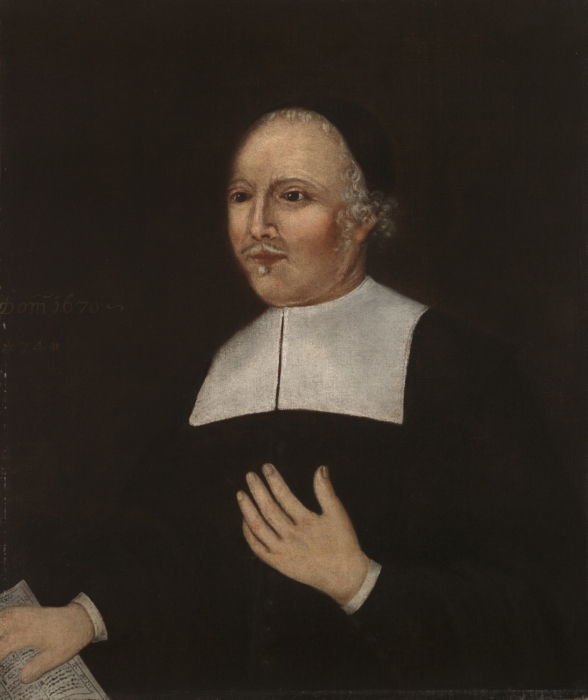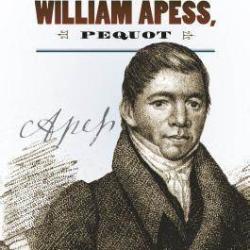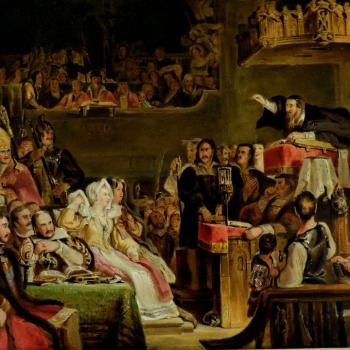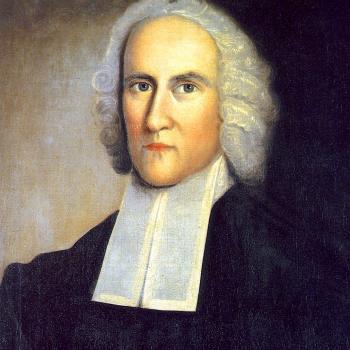As I discussed in my post “Puritans: The Original Republicans?“, few historians today remain interested in Puritanism as the seedbed of American democracy. But as demonstrated by Michael Winship’s excellent book Godly Republicanism, the Puritans may well have been America’s first republicans (small ‘r’), with their loathing of political and ecclesiastical tyranny.
It has been interesting to compare Winship to Francis Bremer’s new biography Building a New Jerusalem: John Davenport, a Puritan in Three Worlds. Davenport is not one of the better-known Puritan founders, but Bremer (the author of a number of excellent books on the Puritans, including John Winthrop: America’s Forgotten Founding Father) makes a powerful case that he was one of the most important Puritan preachers ever to immigrate to New England, becoming the founder of the New Haven Colony. New Haven existed as a colony separate from Connecticut from 1637 to 1662. 
I am writing a review of Building a New Jerusalem for Books & Culture, but one of my initial impressions is how thoroughly English that Davenport was. We may forget that most English Puritans did not leave England, unlike Davenport and Winthrop. Some of those who did go to America returned to England during the English Civil War. And we may also forget that for many Puritans like Davenport, forty years old at the time of his departure for America from the Netherlands, experiences of Reformed activism within the Church of England inextricably formed them prior to their seeking refuge in the New World.
Much of the older literature on the American Puritans emphasized the freedom of the American frontier as key to their development, but books like Winship’s and Bremer’s are as much histories of England as they are of America (the first half of Bremer’s biography transpires in England and the Netherlands). Davenport slowly, painfully came to the realization that his Reformed scruples against remaining “popish” practices in the Church of England, such as the wearing of the surplice and kneeling at communion, and Anglican authorities’ increasing demands for full conformity to those practices, would make it impossible for him to remain in his homeland.
And so it was a very mature, seasoned, and intellectually developed Davenport who arrived in America in the 1630s, with only so much room for New Haven (and Boston, the third “world” of Bremer’s title, where Davenport spent the last years of his long life) to change him intellectually or theologically. In books such as Bremer’s, we are seeing American Puritan studies that are fully transatlantic, as comfortable with the English context as the New English one.
Thinking of early New England Puritanism as the seedbed of American democracy may mislead on two scores. The Puritans weren’t really democrats, and they weren’t all that American.
@ThomasSKidd on Twitter












